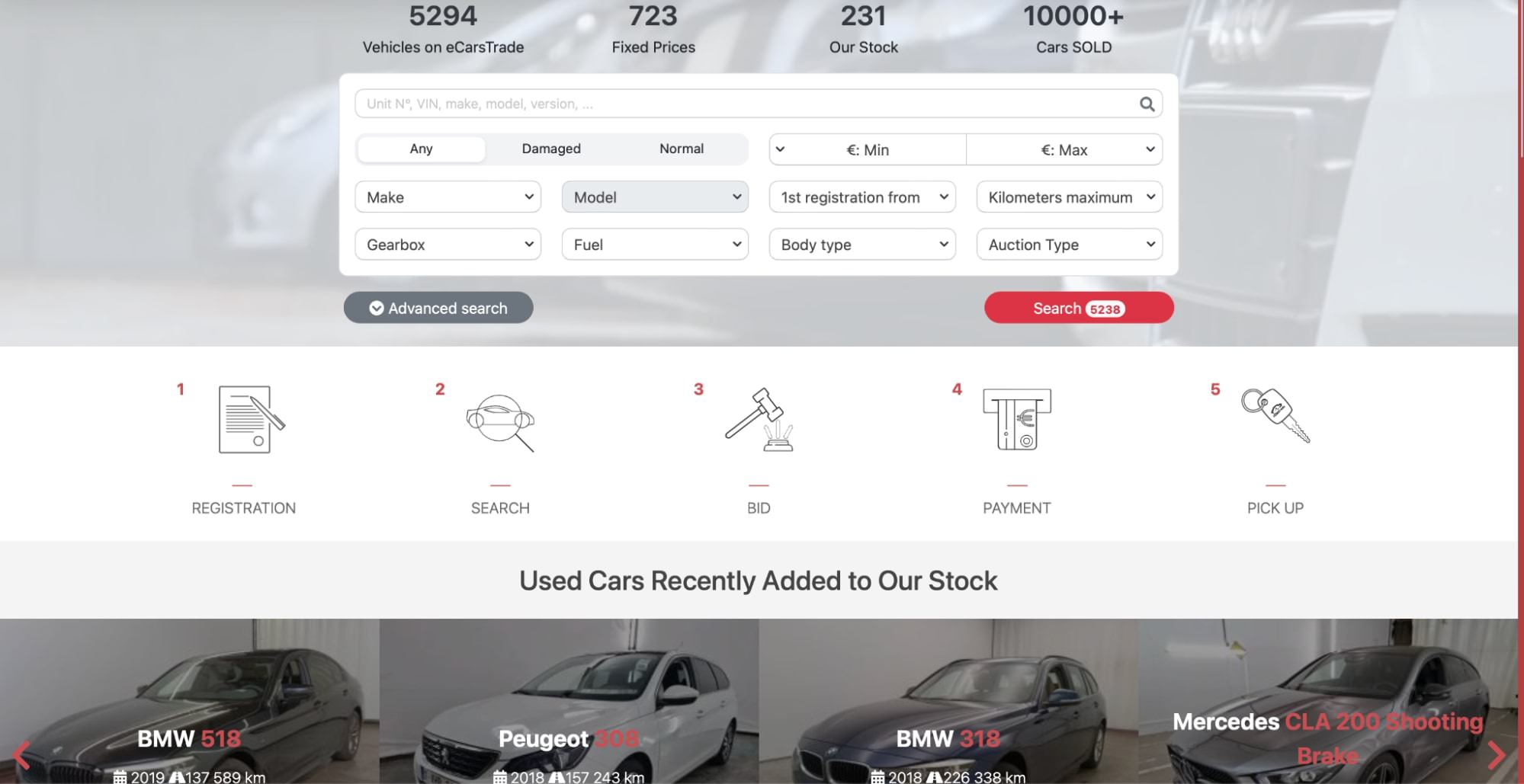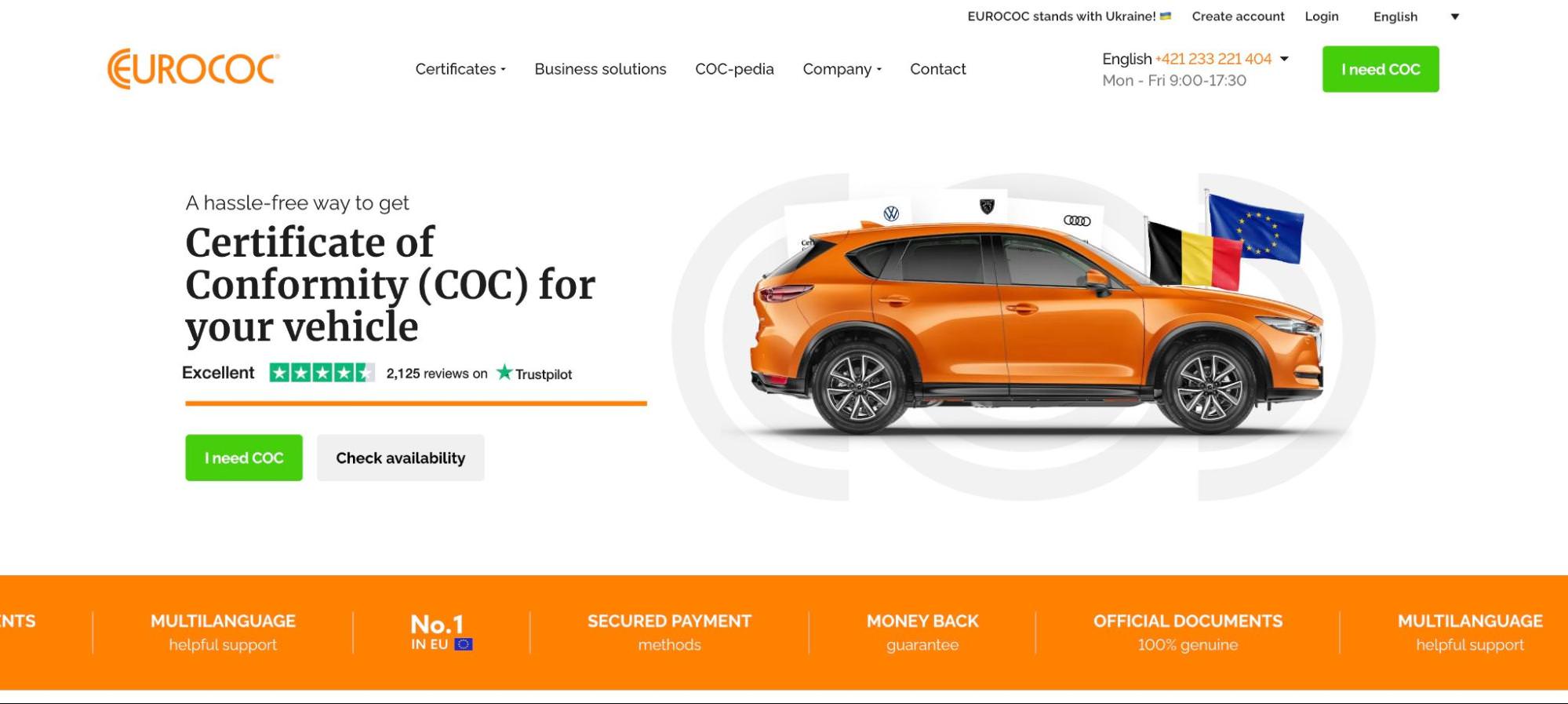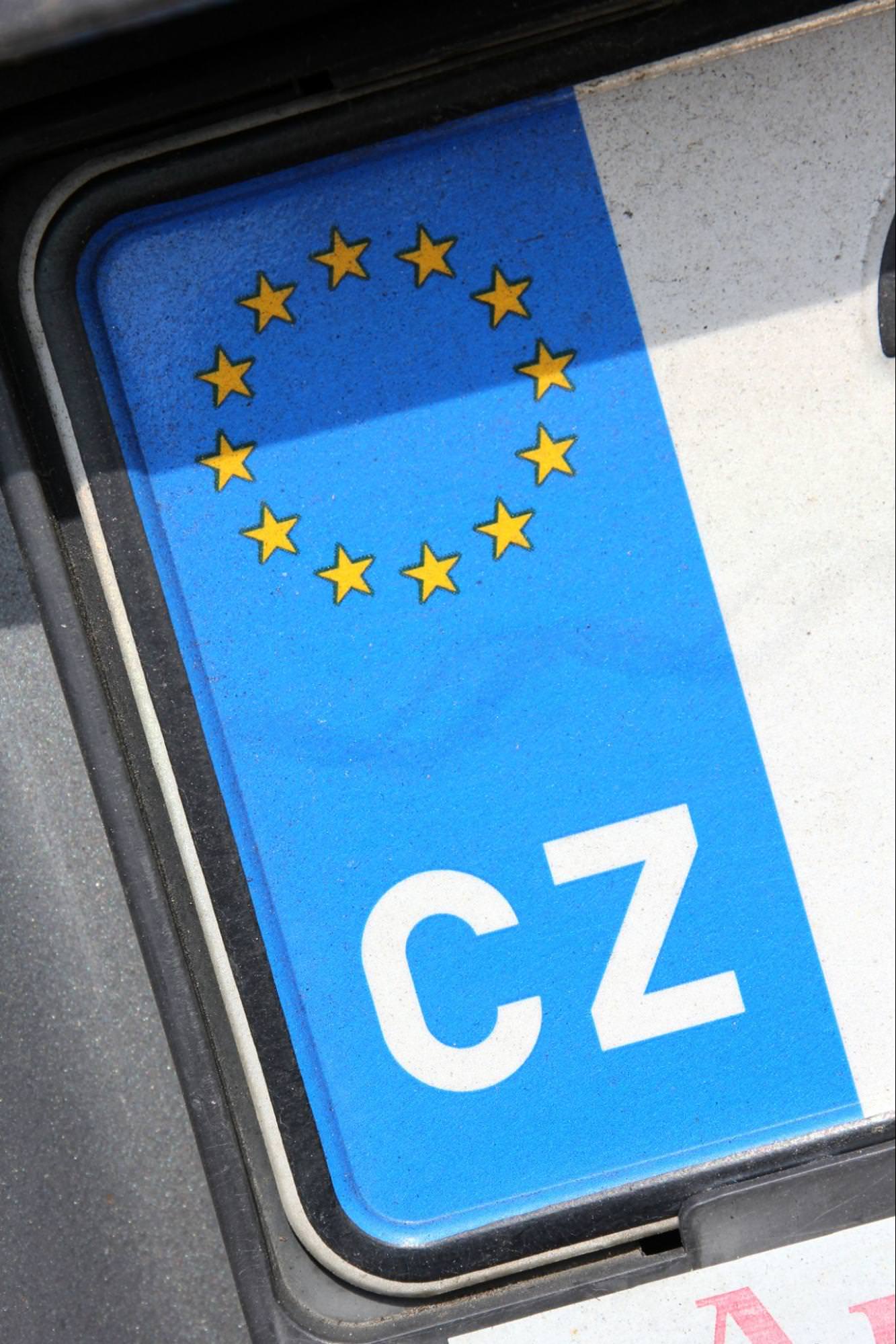- Blog
- How to Import a Car to the Czech Republic?
How to Import a Car to the Czech Republic?
Learn which used cars to buy and how to import them into the Czech Republic, so you can easily stock your dealership with vehicles that your customers are looking for.

If you’re running a used car dealership in the Czech Republic, importing vehicles from the EU could be a great way to expand your selection. That way, you’ll be able to offer your customers more variety and stay competitive in the market.
Plus, bringing in cars from abroad helps you get your hands on models that might be harder to find locally.
So, let’s review the crucial steps so that you can start importing cars successfully, boosting your dealership’s revenue in the process.
We’ll start with a brief overview of the market so that you can make the best choices possible for your dealership.
Get to know the Czech used car market
To make informed decisions about what to import, you’ll want to know what cars will perform best. As you can expect, Skoda is the absolute winner in the Czech car market. Out of the top ten best-seller cars in 2023, seven are Skoda models.
- Skoda Octavia: 21,815 units sold
- Skoda Fabia: 10,775 units sold
- Skoda Scala: 9,784 units sold
- Skoda Kamiq: 9,447 units sold
- Skoda Karoq: 9,032 units sold
- Skoda Kodiaq: 8,659 units sold
- Hyundai i30: 7,728 units sold
- Hyundai Tucson: 6,495 units sold
- Skoda Superb: 6,309 units sold
- Volkswagen Golf: 5,461 units sold
Overall, the overview of the top 100 best sellers of 2023 shows that people in the Czech Republic mostly go for practical cars, like family cars and SUVs. There’s a preference for functional, affordable cars over luxury models.
The average age of used cars on Czech roads is 15 years. So, there’s a demand for used, affordable cars.
By offering slightly newer models, you won’t have to compete with new car dealerships, and you’ll still attract buyers looking for a better deal than they’d get on an older vehicle. It’s a win-win!
Let’s now see how you can start importing.
Documentation for importing vehicles as a business
It’s always a good idea to gather all documents before you start the import process. We’ve compiled a list of documents you’ll need to prepare.
Vehicle purchase invoice
At multiple stages of import, you’ll be asked to present proof of ownership. Whether you call the document a vehicle purchase invoice, a bill of sale, or a purchase invoice, it’s essential to have this paperwork ready. This document will confirm the vehicle’s sale and prove your legal ownership.
Original registration documents
You’ll also have to prepare original registration papers from the country of import. These show that the car was legally owned and registered. So, keep the original foreign registration certificate handy.
Certificate of Conformity (COC)
The Certificate of Conformity confirms that the car meets the EU standards for safety and roadworthiness. It’s a crucial document for importing cars in all EU members, the Czech Republic included.
COC is usually issued directly by the manufacturer, but sometimes it’s not provided with some used vehicles. If the car you’ve bought doesn’t come with COC, you can still get the document issued afterward, and you can buy it online.
To do so, you can contact one of the services like COC online, Euro Conformity, or EuroCOC.
The evidential inspection protocol document
During the registration process, you’ll have to provide the evidential inspection protocol document, called Protokol o evidenční kontrole silničního vozidla in Czech.
The document is issued after an authorized inspection center gives you the green light, confirming that the car is compliant with Czech standards. Essentially, it verifies whether the vehicle’s actual condition matches the details listed on the registration certificate.
You can find a map of technical control stations here.
Proof of VAT payment
In the Czech Republic, VAT generally needs to be paid when importing new vehicles. For used cars from the EU, you won’t have to pay VAT again if it was already taken care of in the country where you bought the car.
Just make sure to provide proof, like a sales invoice showing that VAT was included. If it wasn’t included in the price, you’ll need to pay the 21% VAT when you register the car.
Proof of Czech car insurance
Before registering the car fully, you’ll have to provide proof of liability insurance, which covers any damages caused to others in an accident.
You can buy the insurance in your name before officially owning the car, as long as you have details like the car’s registration number or VIN.
Once the vehicle is registered, you will update the insurer with the new registration information.
Taxes when importing a car to the Czech Republic
You’ll have to pay several taxes and fees when importing a car to the Czech Republic. Here’s an overview.
VAT
If you import a car from outside of the EU, you’ll pay VAT at the standard rate of 21%. However, the import process is much smoother when supplying vehicles within the EU, so most dealers opt for EU vehicles.
Make sure to check if prices include or exclude VAT.
If VAT has already been paid in the country of origin, you won’t have to pay it again since there’s no double taxation in the EU.
But if VAT was not included in the purchase price, like most of the cars sold on eCarsTrade, you’ll need to pay it when registering the vehicle in the Czech Republic.
Registration fee
When the Czech system processes your registration application (which is available in Czech here), you’ll pay the administrative fee. The fee varies depending on the type of vehicle, ranging from CZK 300 to CZK 800, with cars typically costing CZK 800 for registration.
Emission standard fee
If you’re importing a car or light commercial vehicle (M1 or N1) that doesn’t meet at least the EURO 3 emission standard, you’ll need to pay a fee. This fee helps cover the costs of collecting and processing old vehicles. The amount depends on the vehicle’s emission level:
- CZK 10,000 for EURO 0 cars,
- CZK 5,000 for EURO 1, and
- CZK 3,000 for EURO 2.
This fee is applied during the registration process.
Step-by-step process - from purchasing a car to importing it to the Czech Republic
Alright, you’ve seen what documents you’ll need and what fees you’ll pay, so it’s time to stock your used car dealership with quality cars that won’t be staying long on your lot.
Let’s see the steps you’ll have to take to do that.
Research and purchase the vehicle
The Czechs prefer functional, affordable cars like Skoda, VW, and Hyundai, so focusing on these popular brands is a good starting point. However, not all suppliers provide reliable vehicles with clear histories, so you’ll need to find a trusted source for your imports.
If you decide to supply used cars from eCarsTrade, our online auction platform, you’ll get access to a range of cars with clear histories, so you can confidently stock your dealership with trustworthy vehicles.

Once you find the perfect cars for your dealership, you can purchase and order them within the platform.
You won’t have to leave the platform at any point because everything, from browsing and buying to ordering delivery, is done in one place. This makes the process faster and hassle-free, saving you time while keeping all the details you need for your imports in one spot.
Arrange transport
The easiest way to transport cars between dealerships is by hiring a transport company.
You can arrange the transport on your own, but there’s also an option of selecting the eCarsTrade Delivery Service. The service delivers vehicles through the EU to your dealership without you having to do any legwork, so you can focus on other aspects of your business.
Obtain the Certificate of Conformity
You should prepare the Certificate of Conformity because you’ll need to present it at multiple stages during the import process.
Remember that if you don’t have an original certificate, you can buy one online, and they’ll send it to you via post.

Pay VAT if it wasn’t included
If VAT wasn’t included in the purchase price, you’ll need to pay it when registering the car in the Czech Republic. Don’t worry, though!
The process is simple: you’ll pay the standard VAT rate (21%) to the Czech Financial Administration within 10 days of purchase. This ensures everything is by the book, and you can focus on selling your new stock with confidence.
Pass technical inspection
Before you register the car, your vehicle will have to pass the Czech technical inspection.
For ownership transfer, you’ll need to get a light inspection done. You have to take the car in for inspection no fewer than 15 days before your registration.
If the car is older than five years, a full inspection is the way to go.
A full car inspection in the Czech Republic is valid for two years, and it’s indicated by a red sticker placed on the rear license plate.
Register the car
Once the car passes the inspection, you can proceed with registration. To do this, you’ll need:
- the original registration certificate
- proof of insurance
- the technical inspection report
You can register the car at a local municipality office, and after it’s complete, you’ll receive a new registration certificate and license plates.
You’ll usually receive the license plates right away, or within 30 days for more complicated cases.

Importing a car to the Czech Republic - FAQ
► Do I need to pay VAT on imported vehicles?
For used cars from within the EU, VAT is generally not charged if it was paid in the country of origin. However, if VAT wasn’t included, which is the case for the majority of cars on eCarsTrade, you will need to pay VAT in the Czech Republic.
► Can I import cars from anywhere in Europe?
Yes, you can import cars from anywhere in Europe, but it’s much easier to import from within the EU. This is because vehicles imported from EU countries typically already meet the EU’s safety and emission standards and won’t require additional customs fees or duties.
► Do imported cars need to pass a technical inspection?
Yes, all imported cars must pass a technical inspection before they can be registered.
Import cars to the Czech Republic with ease
Now that you’re familiar with the import process, you can easily source cars internationally.
Whether you decide to import cars from Germany, Belgium, or other EU countries, you'll be able to offer cars that meet Czech buyer preferences—reliable and affordable.
So, if you’re looking for a trusted supplier of cars from Germany and the rest of the EU, we think that eCarsTrade auctions might help you find what you need.
Importing vehicles from Europe can be complex, but eCarsTrade is here to simplify the process. Learn how to:



